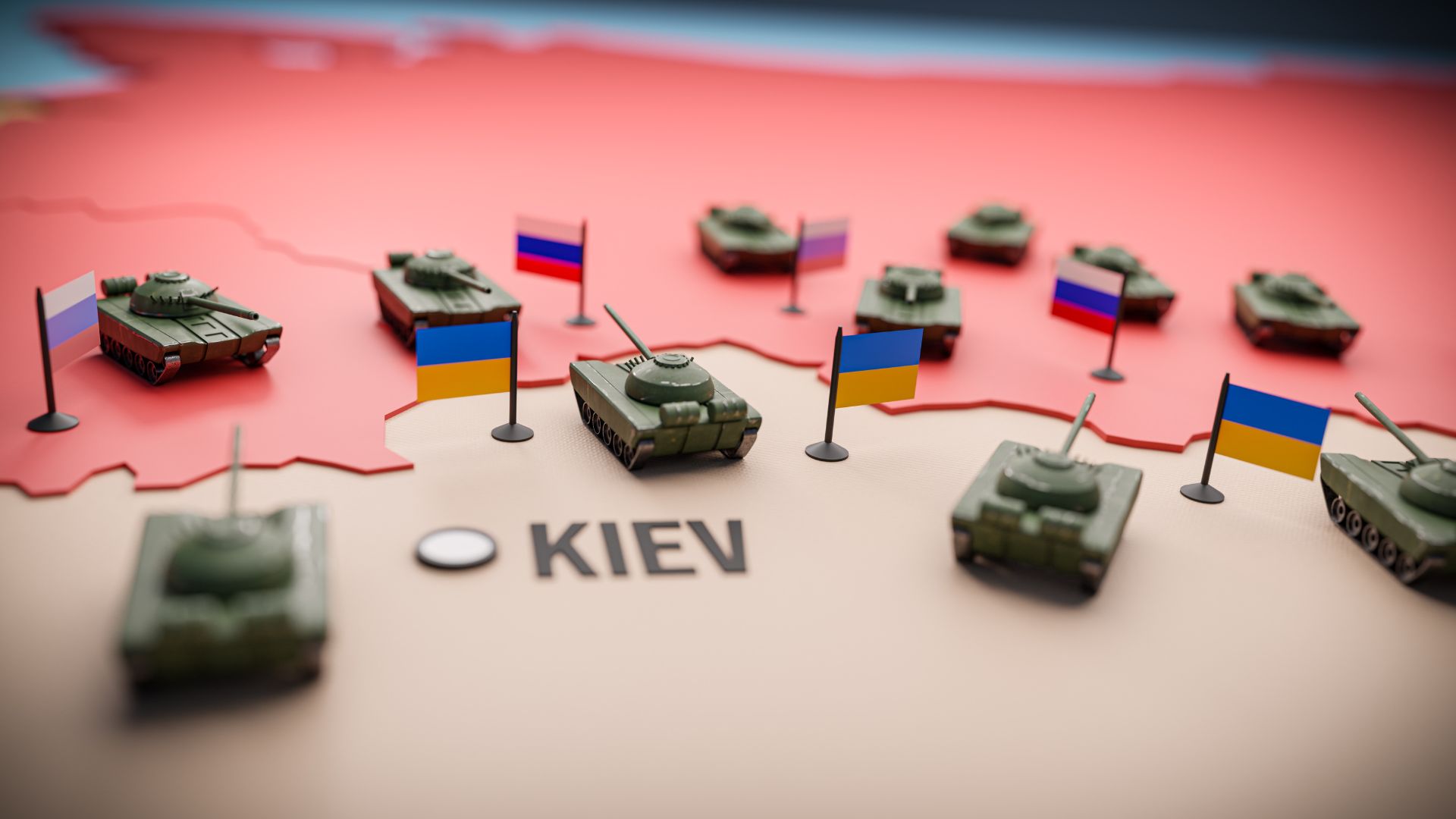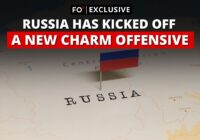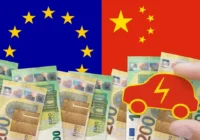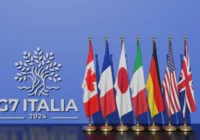When Russian President Vladimir Putin decided to send his troops across the Ukrainian border in February 2022, commentators began to speculate on the possible outcomes. They focused on the future of Ukraine and Russia. Only the very prescient sensed that some more fundamental tectonic shift was taking place. But the tremors unleashed by the Russian invasion are now only too apparent. Every commentator on today’s geopolitics is beginning to weigh in on the new existential questions: what will the new world order look like?
Three major topics, absent from the news even six months ago, now dominate everyone’s reflection: multipolarity, dedollarization and, of course, most disquietingly, a potential nuclear showdown between China and the US. Even if the war in Ukraine were to end tomorrow, the world will continue attentively surveying the two slow-moving trends of multipolarity and dedollarization. The degraded relationship between the US and China, however, has suddenly become the focus of more immediate fears. All of these topics are, of course, intimately related.
Because the major factor in Chinese-American relations is the status of Taiwan, commentators are scrutinizing every statement related to a possible shift in the official American position of “strategic ambiguity.” Just as attentively, they listen to every indication coming from China about Beijing’s attitude with regard to Taiwan, as well as its reaction, increasingly militaristic, to what it sees as a pattern of provocations from the US.
With their focus on the governments of China, the US and Taiwan itself, the commentators have paid far less attention to what the Taiwanese people think. After all, in cases like this, where global geopolitical interests are in play and war between nuclear powers appears on the horizon, who bothers listening to what the people of a small island think or desire?
Much like Ukrainians before the Russian invasion, the Taiwanese population is divided. Even more radically, it is confused. No one can predict where the cleverly and secretly planned strategies of superpowers will lead. Especially in a case like this, where the two rivals regard a populated island as a strategic asset they feel it is in their right to control.
If anyone was truly curious about the thoughts and feelings of the Taiwanese people rather than those of the governments involved in the drama, they would be wise to discover a podcast interview in January with James Lee, an assistant research fellow at the Institute of European and American Studies at Academia Sinica in Taiwan. Among other insights, Lee cites recent polling showing that trust in Taiwan’s principal economic ally, the US, has been declining.
“Something that doesn’t get noticed very much in the United States is, we don’t really know what is driving this doubt about U.S. credibility. From my personal observation, when you watch the news in Taiwan, people here are very, very attentive to the semiconductor industry, and how important it is for Taiwan’s security. Turn on the TV in the daytime and a cable talk show will be talking about TSMC. They’re very concerned that TSMC is going to come under pressure to export its technology to the United States.”
Today’s Weekly Devil’s Dictionary definition:
Credibility:
An attribute that indicates the level of belief one may have in the sincerity of the intentions of another person, based either on the consistency of that person’s behavior or, in the case of manifestly inconsistent behavior, its ability to bully others into a form of artificial respect.
Contextual note
The US and Western media in general have seriously underestimated the effect of two recent historical moments on the credibility of the US, in its role as a global actor and the reigning hegemon. For many countries that had been taught to count on US protection, the Biden administration’s chaotic withdrawal from Afghanistan served as a wakeup call. The American retreat took place after two decades of an aggressive, persistent, largely unjustified and equally unmanageable war that overturned a government, failed to provide a viable alternative, was extremely costly in blood and treasure, instituted a regime nourished by corruption, only to ultimately abandon the terrain to the enemy it vowed to eliminate. The US added insult to injury when it seized the dollar assets of the Taliban government, aggravating the population’s misery.
The other major dent in US credibility for overseas observers came from the incompetently improvised foreign policy of Donald Trump during his four years in the White House. His slogan “America first” sent a simple message to the populations of the globe: you simply don’t count, even as Washington kept insisting that it alone had the right to apply and enforce the rules of a “rules-based order.” Trump had a specifically traumatizing effect on Taiwan. In the interview Lee explains that “Trump got a lot of people worried when he said that the United States may not adhere to its One China Policy… It seemed Trump was treating Taiwan as a pawn and had a very transactional way of thinking about Taiwan in the U.S.-China relationship. ”
Today, the Taiwanese cannot dismiss the possibility that Trump may even return to power following next year’s election. At the same time it understands that US President Joe Biden, who left Afghanistan by the wayside, is 80 years old and has lost any physical and mental spryness he once may have had. None of this bodes well for Washington’s credibility.
It’s also worth noting that, contrary to the impression US media has created, the Taiwanese fear any deviation from the One China Policy, which insists on seeing Taiwan as part of China. Ambiguity, yes. Independence, no.
Historical note
The US – and especially its most bellicose Republican senators, followed by much of the media – has achieved a kind of consensus concerning China. They see Beijing’s visible effort at building up its military as a manifestation of the regime’s imperial ambition. It appears to them as a prelude to invading Taiwan before moving on to subjugate entire swathes of Southeast Asia. This has become the standard template in the US for defining the “secret” intentions of any of its declared enemies. Putin, as everyone should know by now, only invaded Ukraine to reconstitute the Soviet Union and then to deploy his powerful military to dominate Europe.
When George W Bush invaded Iraq and unleashed the dogs of war across great swathes of the Middle East, he claimed: “We will fight them over there so we do not have to face them in the United States of America.” In other words, overturning governments halfway across the globe is “deterrence,” US style. In the podcast, Lee claims that China’s intention behind its military buildup, devoid of any intention of invasion of other countries or even of Taiwan, is “to achieve deterrence.” At the same time he warns that “there is a risk that the U.S. is thinking about this issue too much in military terms, and isn’t doing enough to achieve deterrence on the political side of things.”
How can any observer not see this as part of a pattern? It reflects everything that has played out over recent decades of US foreign policy. The most lucid commentators on the war in Ukraine have been wondering why the Biden administration has not only not pursued a negotiated settlement to the war, but has even prevented the Ukrainians from engaging in negotiations. Secretary of Defense Lloyd Austin offered the clearest answer to that question a year ago, when he hinted that the aim of the campaign was not to defend Ukraine, but to “weaken Russia.” Others, including Hillary Clinton, have spoken with some delectation about engaging Russia in a war of attrition.
The Taiwanese cannot dismiss the idea that they may be treated in a similar way. This has produced an incredibly uncomfortable situation for Taiwan’s population, who appear to be aware of the fact that they are inextricably connected to China through history, geography, culture and language and only tangentially connected to the US and the rest of the world through their domination of the business of manufacturing semiconductors. But what the Taiwanese think or desire will have little impact on what the world’s most powerful democracy decides concerning their fate.
*[In the age of Oscar Wilde and Mark Twain, another American wit, the journalist Ambrose Bierce produced a series of satirical definitions of commonly used terms, throwing light on their hidden meanings in real discourse. Bierce eventually collected and published them as a book, The Devil’s Dictionary, in 1911. We have shamelessly appropriated his title in the interest of continuing his wholesome pedagogical effort to enlighten generations of readers of the news.
Read more of Fair Observer Devil’s Dictionary.]
The views expressed in this article are the author’s own and do not necessarily reflect Fair Observer’s editorial policy.
Support Fair Observer
We rely on your support for our independence, diversity and quality.
For more than 10 years, Fair Observer has been free, fair and independent. No billionaire owns us, no advertisers control us. We are a reader-supported nonprofit. Unlike many other publications, we keep our content free for readers regardless of where they live or whether they can afford to pay. We have no paywalls and no ads.
In the post-truth era of fake news, echo chambers and filter bubbles, we publish a plurality of perspectives from around the world. Anyone can publish with us, but everyone goes through a rigorous editorial process. So, you get fact-checked, well-reasoned content instead of noise.
We publish 2,500+ voices from 90+ countries. We also conduct education and training programs
on subjects ranging from digital media and journalism to writing and critical thinking. This
doesn’t come cheap. Servers, editors, trainers and web developers cost
money.
Please consider supporting us on a regular basis as a recurring donor or a
sustaining member.
Will you support FO’s journalism?
We rely on your support for our independence, diversity and quality.







Comment